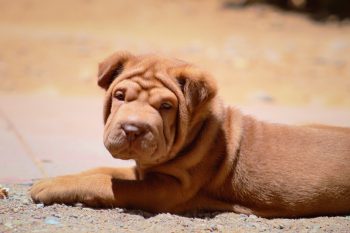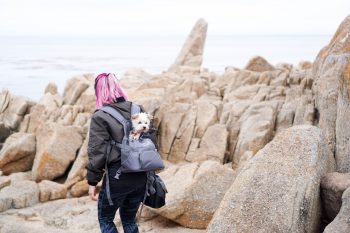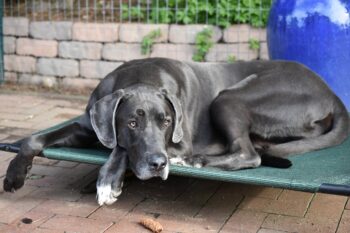Why Do Dogs Pant?
The post Why Do Dogs Pant? by Jessica Peralta appeared first on Dogster. Copying over entire articles infringes on copyright laws. You may not be aware of it, but all of these articles were assigned, contracted and paid for, so they aren’t considered public domain. However, we appreciate that you like the article and would love it if you continued sharing just the first paragraph of an article, then linking out to the rest of the piece on Dogster.com.
All dogs pant. Many times it just means they’re hot.
California-based dog trainer Ash Miner, a certified trick dog instructor (CTDI) working on a master’s degree in animal behavior, says panting is the best method dogs have to disperse heat considering they can only truly sweat through glands located in their paw pads.
But there are other reasons dogs pant.
Why do dogs pant so much?
Dogs pant when they’re hot and tired. They pant to disperse heat by expelling the trapped hot air inside their bodies and breathing in the cooler air around them.
It is normal for dogs to pant. In fact, Ash says that a dog who can’t pant well may have airway issues or lung issues that should be looked at by a veterinarian.
In addition to physical exhaustion from activity and exercise, the panting can also result from mental exhaustion — like stress. It can also mean your dog is excited.
Dogs may pant when they are deep in play. Ash says that although dogs don’t start out panting at the beginning of play, they can pant after some exertion. She says sometimes they will even freeze and close their mouths to begin a game of “pounce” or “chicken.” But after a while, they start panting.
There are also medical reasons that dogs pant. Dogs who get car sick may pant before vomiting. Panting can also signal that a dog is in pain. For example, dogs with arthritis may pant from feeling pain in their joints, according to Ash. Other conditions include respiratory issues and heart failure.
Heavy panting in dogs can also indicate a serious and immediate condition like heatstroke.
Normal panting vs. heavy panting
Though panting is normal and healthy in dogs in many cases, there is also abnormal panting that can indicate a problem.
Ash says normal panting is:
A consistent, even breathing speed
The dog’s eyes are squinting.
The face is relaxed.
The dog’s lips are pulled back into a smile in order to widen the mouth for maximum heat expulsion.
The dog’s ribcage moves, which may cause his entire body to move.
Beyond normal panting, heavier breathing may mean there is a problem that needs attention.
Ash says signs of heavy panting can often be spotted in the tongue.
If the tongue is in a fairly normal position, this is light panting.
If the tongue is moving aimlessly out of the dog’s mouth, this is moderate panting.
If the tongue tip is widened, this is heavy panting.
If the tip of the tongue curls back up on itself, this is a possible sign of heatstroke and the dog should be given cool (not cold or warm) water to drink right away and taken to a cool place, preferably with air conditioning.
What should I do when my dog pants?
Generally speaking, panting in dogs is a pretty normal occurrence to help them cool down, but there are times when it can signify a deeper issue like stress, pain or a medical condition.
If your dog’s face is relaxed, his breathing is even and his tongue is normally positioned in his mouth, this is all typical panting. Offer him some water and keep him in a cool location out of the sun if you see his tongue flopping out of his mouth because this is moderate panting.
However, if the tip of your dog’s tongue curls back on itself while out playing in the sun, he could be having heatstroke and he needs to drink cool water right away and possibly taken to the vet.
Also, if you start seeing your dog panting more than usual, it could be a sign of pain or a medical condition that may require veterinary assistance as well.
The post Why Do Dogs Pant? by Jessica Peralta appeared first on Dogster. Copying over entire articles infringes on copyright laws. You may not be aware of it, but all of these articles were assigned, contracted and paid for, so they aren’t considered public domain. However, we appreciate that you like the article and would love it if you continued sharing just the first paragraph of an article, then linking out to the rest of the piece on Dogster.com.




